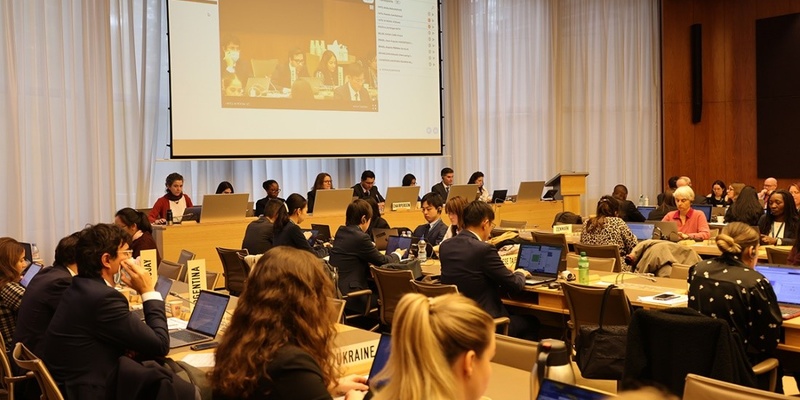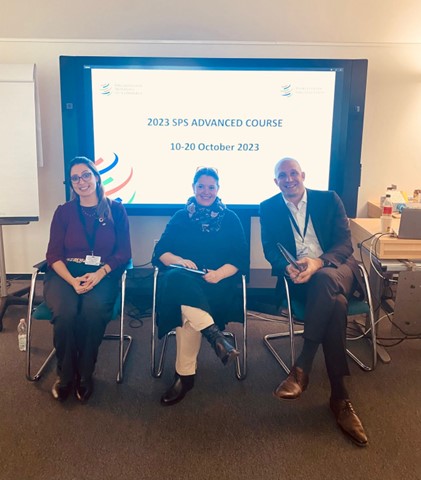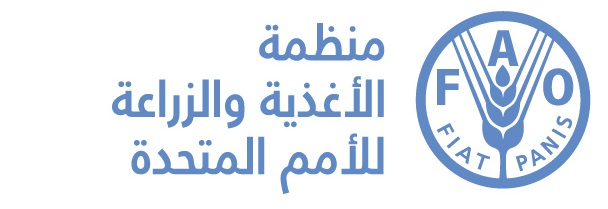Strengthening International Safe Trade: Collaborative Efforts of IPPC and WTO under the SPS Agreement
Posted on إثنين, 04 مارس 2024, 14:05

©WTO
In the intricate web of international trade, ensuring the successful flow of goods while protecting trade against risks to plant health requires strong partnerships. At the heart of this enterprise lie two crucial entities: the International Plant Protection Convention (IPPC) and the World Trade Organization (WTO). Their collaborative efforts not only facilitate safe trade but also uphold standards for phytosanitary measures, ensuring the protection of plants worldwide, while supporting food security and environmental protection.
Cooperation between IPPC and WTO
The partnership between IPPC and WTO traces its roots back to the negotiations on the Agreement on the Application of Sanitary and Phytosanitary Measures (SPS Agreement) during the Uruguay Round of the General Agreement on Tariffs and Trade (GATT). In 1995, the SPS Agreement entered into force along with the establishment of the WTO and recognized the IPPC as the international organization responsible for phytosanitary standard-setting and upon which WTO members would base their phytosanitary measures. While the IPPC aims to protect plants and natural resources by preventing the introduction and spread of pests, and at the same time facilitating safe trade, the SPS Agreement sets the framework for the development, adoption and enforcement of sanitary and phytosanitary measures that may affect international trade.
Through their collaboration, IPPC and WTO have worked to harmonize international plant health standards and adopted transparency, facilitating market access while preventing the introduction and spread of pests through international trade. This cooperative relationship features the shared commitment to promote safe trade practices and protecting global plant health. "The collaboration between IPPC and WTO is primary in ensuring the efficient facilitation of global trade and food security while protecting plant health and the rest of the eco-system against phytosanitary risks. Through strategic partnerships and knowledge exchange, we build the way for a more resilient and interconnected global trade landscape," stated Osama El-Lissy, IPPC Secretary.
The “Three Sisters” in the SPS Agreement
Apart from plant health, vital to safe international trade is the protection of human and animal health. Thus, the WTO SPS Agreement has recognized other international standard-setting bodies namely, the Codex Alimentarius which develops food safety standards and the World Organization for Animal Health (WOAH) which deals with standards in animal health. Interconnection and collaboration among the “three sisters” in the SPS Agreement – IPPC, Codex and WOAH – is necessary for WTO Members and IPPC Contracting Parties to effectively implement the SPS agreement to promote safe international trade. In 2022, the WTO Ministerial Declaration 12 reiterated the importance of the underpinning principles in the SPS Agreement while recognizing the evolving global agricultural landscape since the SPS Agreement was adopted in 1995, where new opportunities and challenges have emerged for the international trade in food, animals, and plants.
Adriana G. Moreira, Deputy Lead to the Standard Setting Unit of the IPPC Secretariat, brought the plant health contributions to the various working groups from the WTO Ministerial Declaration 12, such as on transparency, food security and risk assessment. The IPPC secretariat also contributed to several technical activities organized by the SPS Secretariat, such as the Advanced SPS Course to highlight the intricate nexus between trade and phytosanitary measures. “We need to adopt initiative-taking measures and transparent provisions in international trade to ensure compliance and foster safe trade facilitation whenever needed” Adriana stated.
Moreover, the IPPC Secretariat also engaged with Codex, WOAH and with SPS Agreement’s members on the monitoring of international standards, mainly through out each standard setting bodies “observatories”. Read more on IPPC Observatory here.
The collaborative efforts of IPPC and WTO resonate deeply within the phytosanitary community and international trade spheres. By strengthening the implementation of the SPS Agreement and promoting harmonized standards, these entities foster an environment contributing to safe trade practices and sustainable economic growth.
Their collective enterprises not only protect plant health but also underline broader initiatives aimed at ensuring food safety and security, protecting the environment, and encouraging inclusive economic development. Through collaboration and concerted action, the IPPC and WTO build pathways for a more resilient and interconnected global trade landscape.

©Adriana G. Moreira - Representatives of the “three sisters” to the SPS Agreement: IPPC Secretariat (Adriana G. Moreira), Codex (Gracia Brisco) and WOAH (Francisco D’Alessio).

